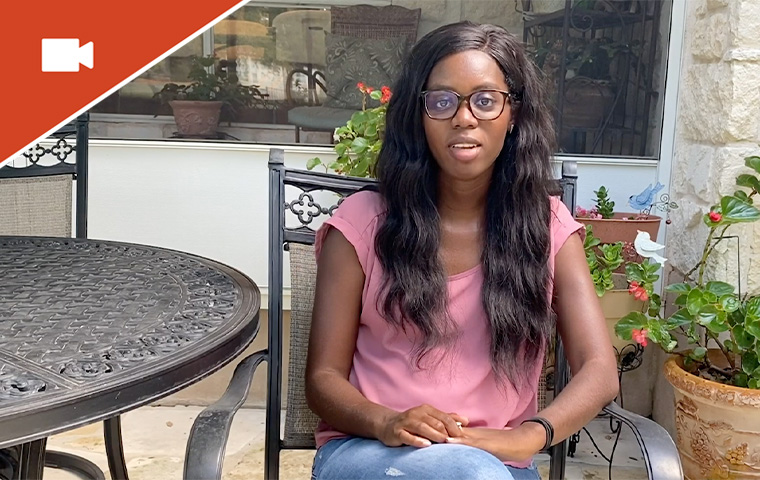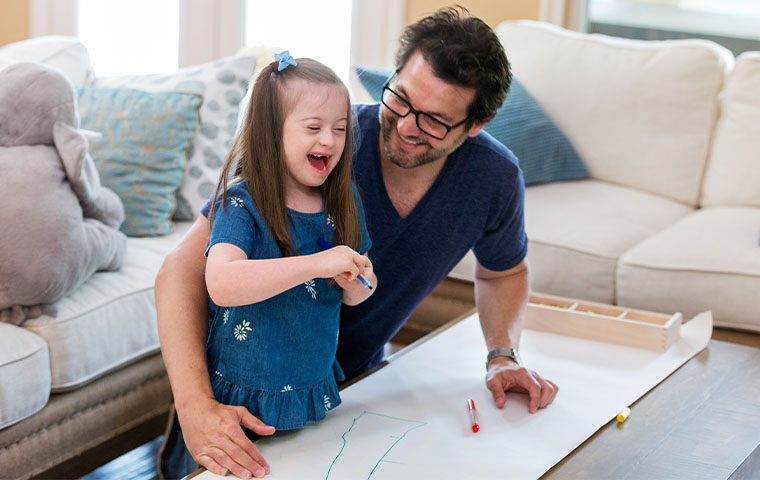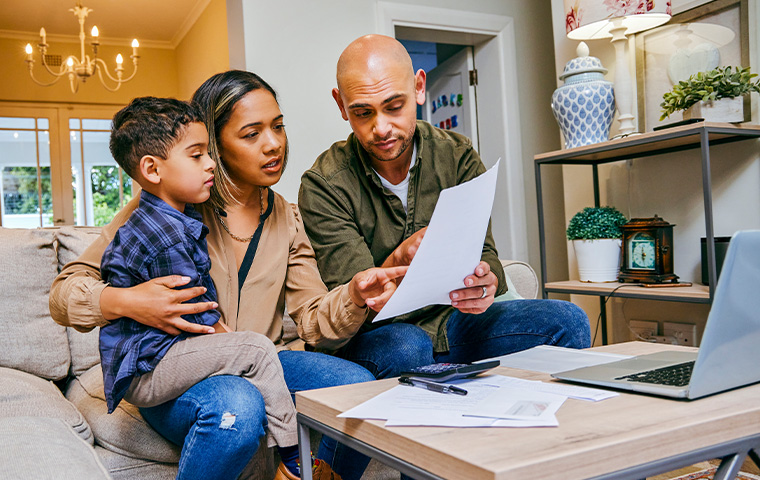Parenting is hard work. No one would argue with that. It can be very stressful at times - even overwhelming - but with the right self-care, it can still be wonderfully rewarding. In my nearly 20 years as a mother, I've learned that without taking care of myself, I can't take care of my family.
Here are some insights I've drawn over the years that may help anyone who feels overwhelmed - or is just having a hard time finding balance in family life. As hard as it is to believe, it is possible to replace anxiety and stress with relaxation. This article can help guide you on how to deal with anxiety and will give you practical ways to relieve stress.
Take time to exercise and rest.
I'm sure you've heard many times that exercise and rest are key to your health. It's true! Being active helps reduces stress. Taking care of yourself is important in helping you manage both stress and anxiety. As much as I'd love to spend two hours at the gym (even if it is just for some alone time), I've made it a goal instead to do a 20-minute power walk each morning. If I have time to do yoga or weights afterwards, great! If not, at least I got that walk in to get my mind right each day. Remember, setting realistic goals and expectations is the first step in taking care of yourself. The following are a few more of my best body wellness tips plus some stress management techniques.
For me, coping with anxiety starts with scheduling a time every day for exercise. Change it if you need to, but have a plan. You can double the fun by including your kids on walks when you can - my daughter loves to join me! Another tip for managing stress is to take 20-minute power naps to boost creativity and elevate your mood. There are many natural remedies to reduce anxiety. Try meditating, or practice your breathing. Close your eyes, take a few deep breaths, and try to clear your thoughts for just a minute or two. You'll be surprised how much it helps address stressful moments.

Spend time in nature.
Did you know that just spending a few minutes each day outside can alter your mindset? It's called eco-therapy, and it's a natural remedy for anxiety. Even if you can't escape to the beach or the mountains, a 20-minute outdoor activity can bring back balance in the universe!
There are lots of ways to enjoy the outdoors, either alone or with the kids. Explore a new park, have a family picnic, or just take a walk. Spending time outside is a great way to deal with anxiety and to relieve stress; it's a good calming technique as well as an active form of relaxation. There are studies that show that simply taking a walk in a park is a natural stress management activity.

Allow kids and teens to solve their own problems.
Ok, so I know this is easier said than done, but loosening our grip as our kids grow is key to their development. Parenting is stressful on its own. A tight grip can be an added cause of stress. When we take our kids' stress and challenges onto ourselves, it multiplies our own stress unnecessarily. Next are actionable tips for allowing our kids to problem-solve themselves.
Family stress is real, and one of the most important ways to manage family stress is to listen. Try to listen more than prescribe or advise children. By listening you can decrease your own parental anxiety. Another thing to remember: it's good to be vulnerable yourself sometimes. I do this by sharing some of my own experiences with older children and teenagers.
Help your kids identify problems and be sure to ask them, "How can I help the most?" Remember to validate their feelings. I can't emphasize this enough: validate, validate, validate. Collaborate, or join together, instead of controlling them. It's a huge relief when you can see your kids start to problem-solve and use critical thinking on their own. It not only makes you feel good as a parent, it takes stress away from you as well.
How to manage parenting stress: Kira Carrens
Make time for things you enjoy.
It's true that parenting is one of the most selfless (and often thankless) jobs. So we need to make sure that we're still doing things that we love. When we make time for ourselves it's a great mental and emotional reset. It also shows our children that you're an independent person and not just Mom or Dad. Setting an example of self-care also teaches children how important it is. When you take care of yourself, you're showing that you love yourself. This teaches kids that it's a good thing to love and take care of themselves too!
Taking time for yourself should also reduce your anxiety. Practice a hobby that you already love - knitting, cooking, reading a good book. And be sure to schedule an occasional night out with friends or family. Or set aside some just me-time, like going on an ice cream outing by yourself. And don't forget about time with your partner! Quality time together can help relieve stress and remind you that you're not alone.

Try to remember: Don't take things personally.
We can be so emotionally invested in parenting that it can be stressful when a child rolls her (or his) eyes, throws a tantrum, slams the door, or talks back. Those can be super quick causes of stress. It's important to remember that it's natural for kids to push boundaries. We need to be a soft place for them to land while still setting expectations about how we respect each other. Try to not take it personally when they act out emotionally.
When your child shows stress, remind yourself about the relaxation techniques for taking care of yourself. My best advice is don't react! Count to 10 (or 20 or 30). Take a deep breath, or more than one, if needed. Wait until you're calm to talk about frustrations. If you need to walk away first, that's okay too. Just make sure everyone is safe, and take a few moments to calm down. Avoid projecting your feelings onto a child. Try to avoid blaming. Instead, try brainstorming solutions together by letting ideas flow freely without judgment. These techniques will help your child learn how to help reduce anxiety, too.
How to manage parenting stress: Connie Leon
Stressors by Age
If you know about and plan for child stressors by age, you'll be ready to tackle them head on when you approach that stage of parenting. Here are a few stressors to think about for each stage of development.
Infant/toddler (newborn - 4 years old)
Lack of sleep and tantrums are big stressors for young kids. And children this age tend to be picky eaters. Prepare yourself to know these are normal. When you can avoid a conflict, do it! Your child's preferences and schedules will probably change very soon, so if she doesn't like bananas today, that's okay. You'll also find yourself worrying about developmental milestones. You may feel stressed about your child learning to talk, walk, or read. This parenting stress may make you feel anxious, so think about the natural remedies for anxiety that I mentioned above. During all of this, don't forget that your children need you to set boundaries. They're pushing those boundaries so they can learn what is and isn't appropriate, so remain calm and consistent.

Grade school (5 - 10 years old)
Deciding how to educate your child will be a stressor. It takes time and consideration deciding what school or program is best for your child and your family. Children will also be making new friends, which is exciting, but with friendship often comes friend drama. Be prepared to listen to your child's experiences and try to engage with her as much as possible. Encourage her to find solutions and say "I'm sorry" when needed.
During this time, you and your child will be learning how to lean on each other but will also be learning to be more independent of each other. It's okay to take it day by day. Another experience you'll have is setting expectations for school and grades. These expectations can cause conflict in your relationship with your child and can create family stress. It's important to be involved with school and help children problem-solve when they struggle. This might include helping with homework or having a meeting with a teacher to see how you can work together to help her succeed. There are lots of challenges that will come, so always go back to your relaxation techniques. They will be key as your child continues to grow.
Need parenting help now?
The Texas Parent Helpline is available 24/7.
- Call 833-680-0611
- Chat with us
- Text 833-680-0611
Preteen/teenagers (11 - 18 years old)
Emotional and physical changes for kids in this stage are huge stressors, not only for maturing kids but for us as supportive parents. In particular, preteens tend to experience a lot of physical changes that can cause stress for them as well as their parents. They're going through a lot, so when you can, be gentle and patient. And remember how important it is to listen. That can be easier said than done - especially during an emotional outburst - but try to remember that while a preteen's body is growing, her brain still isn't fully developed. She's probably just as overwhelmed as you are, even if she doesn't say it. Try to remind your child that you're always on her side and you're there to talk whenever she wants. During times of stress, frustration, or confusion, it's okay to stop and take a few deep breaths or a take a break if you need to. And the same goes for her.

Teenagers are preparing to launch into adulthood, so there tends to be more mental stress associated with this age. One challenging area can be discipline. What may have worked before might not anymore. It's still important, though, to set clear expectations and follow through with consequences when rules are broken.
As a parent, you're helping your teen learn new levels of responsibility. Driving is a serious new skill and may cause a lot of parental anxiety no matter how much you love and respect your teenager. It can be a relief for parents, however, when teens are happy to run errands because they want to drive. Try to remember that during the learning process, there's light at the end of the tunnel!
Another long-anticipated stress (as well as fun) is your teen starting to date. It's difficult to wait up at night for her to come home, worrying about her safety and tender heart. Here you might be learning how to be both a parent and a friend. There will be times when you need to discuss boundaries, and times to comfort her if a broken heart happens. These emotional and physical changes in your teen need your attention. Prior understanding of this age and managing your own expectations will help a lot.
You will likely have to handle issues about phone use, which is a heavily charged stressor. Make sure you set clear expectations about appropriate phone use and be prepared for potential conflict about it. A first cell phone is a symbol of newly gained freedom, but for you it can be scary and stressful. Social media will also be a big influence in your child's life. With healthy use it can provide joy and fun, but it can also introduce anxiety, depression, and exposure that you'd rather not experience. Figure out what level of privacy works for you and your family when your teens are using social media. It's important to protect them, but also let them explore as well.
And don't forget about school. The skills your teen learns now will be critical for her final years of high school and years to come. This will mean taking what she's learned to college or into the workforce. It can be a lot of pressure for her to think about. She may also be juggling classes with athletics, school clubs or activities, a part-time job, and managing her busy social life. It's important that she goes in the direction you and she desire by successfully completing her middle and high school years.
I hope the tips in this article will help you feel better-prepared to reduce your parental anxiety through the years. I also hope you're able to find relaxation techniques that work for you so you can feel more at peace as challenges come. The more we can plan for possible stressors the better we can tackle them when they come.







